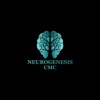In the rapidly evolving world, maintaining optimal brain and cognitive function is crucial. Our cognitive abilities underpin every aspect of our daily lives, from professional productivity to personal interactions and overall quality of life. One key component of cognitive health is memory, which allows us to store and retrieve information effectively. Regular memory evaluations are essential to ensure that our memory and cognitive functions are operating at their best.

By undergoing a comprehensive memory assessment, individuals can gain valuable insights into their cognitive strengths and areas that benefit from enhancement. These evaluations encompass a spectrum of tests designed to gauge memory capacity, recall accuracy, and cognitive agility, providing a holistic view of one\'s cognitive prowess.
Understanding Brain and Cognitive Function
Before understanding the specifics of memory evaluations, it\'s important to grasp the broader concept of brain and cognitive function. The brain is an incredibly complex organ responsible for regulating everything from basic bodily functions to advanced intellectual processes. Cognitive function refers to the mental processes that enable us to carry out any task, encompassing perception, memory, attention, language, problem-solving, and decision-making.
Some cognitive decline is natural as we age. However, various factors, including lifestyle choices, medical conditions, and genetic predispositions, can influence the rate and extent of this decline. By understanding these factors and their impact on brain health, we can better appreciate the importance of regular cognitive assessments.
The Importance of Memory Evaluations
These evaluations are specialized assessments designed to measure different aspects of memory and identify any areas of concern. These evaluations are particularly valuable because they can detect early signs of cognitive decline, such as those seen in conditions like Alzheimer\'s disease and other forms of dementia. Early detection allows for timely interventions, which can slow the progression of these conditions and improve quality of life.
Memory evaluations typically involve a series of tests that assess various types of memory, including:
- Short-term memory: The ability to hold and manipulate information over brief periods.
- Long-term memory: The capacity to store and retrieve information over extended periods.
- Working memory: A type of short-term memory that involves actively maintaining and manipulating information.
Benefits of Regular Evaluations
- Early Detection of Cognitive Issues: One of the most significant benefits of regular evaluations is the early detection of cognitive impairments. Identifying problems early can lead to more effective management and treatment options.
- Tracking Cognitive Health: Regular assessments provide a baseline and allow for monitoring changes over time. This is particularly important for individuals at risk of cognitive decline due to family history or pre-existing medical conditions.
- Personalized Interventions: The results of memory evaluations can inform personalized intervention strategies, including lifestyle changes, cognitive training, and medical treatments. Tailored interventions are more likely to be effective in improving or maintaining cognitive function.
- Peace of Mind: For many, undergoing regular evaluations provides reassurance. Knowing that you are actively monitoring your cognitive health can reduce anxiety and empower you to take proactive steps.
- Tailored Strategies: With insights from these evaluations, individuals can embark on a journey of cognitive enhancement tailored to their unique needs. From memory retention techniques to cognitive exercises and brain training programs, the data gleaned from memory assessments can inform personalized strategies to optimize cognitive function. By targeting specific areas of cognitive weakness and building on cognitive strengths, individuals can enhance memory, attention, and overall cognitive performance.
- Empowering Informed Decision-Making: This empowers individuals to make informed decisions about their cognitive health and well-being. By understanding their cognitive strengths and weaknesses, individuals can take proactive steps to maintain and enhance cognitive function. Whether implementing lifestyle changes, engaging in cognitive training, or seeking professional support, the insights from memory assessments guide individuals toward strategies that support optimal brain health and cognitive function.
How Memory Evaluations Are Conducted
These evaluations can be performed by various healthcare professionals, including neurologists, psychologists, and geriatricians. The process typically involves:
- Clinical Interviews: These gather comprehensive medical and personal history to identify factors that may impact cognitive health.
- Standardized Tests: A series of cognitive tests that measure different aspects of memory and other cognitive functions.
- Neuroimaging: In some cases, imaging techniques like MRI or CT scans may be used to examine the brain for structural changes.
Enhancing Cognitive Function Through Lifestyle Choices
While these evaluations are critical for assessing cognitive health, several lifestyle choices can enhance brain function and potentially improve memory performance:
- Physical Exercise: Regular physical activity has been shown to improve brain health by increasing blood flow and stimulating the growth of new neurons.
- Healthy Diet: A balanced diet rich in fruits, vegetables, whole grains, and lean proteins provides essential nutrients that support brain health. Omega-3 fatty acids, in particular, are known to benefit cognitive function.
- Mental Stimulation: Engaging in mentally stimulating activities, such as puzzles, reading, and learning new skills, can help keep the brain active and improve cognitive function.
- Adequate Sleep: Quality sleep is essential for memory consolidation and overall brain health. Aim for 7-9 hours of sleep per night to ensure optimal brain and cognitive function.
- Stress Management: Chronic stress can negatively impact memory and cognitive function. Techniques such as mindfulness, meditation, and regular relaxation can help manage stress levels.
Conclusion
The synergy between memory evaluations, brain health, and cognitive function epitomizes the essence of cognitive wellness, offering a roadmap toward cognitive optimization and brain vitality. Embrace the transformative power of memory assessments, embark on a journey of cognitive discovery, and unlock your brain\'s boundless potential. These evaluations are a vital tool in maintaining brain and cognitive health. By providing early detection of cognitive issues, enabling personalized interventions, and offering peace of mind, these assessments play a crucial role in our overall well-being.
Alongside regular evaluations, adopting a brain-healthy lifestyle can significantly enhance cognitive function and improve memory performance. As we continue to understand more about the brain, integrating these practices into our daily lives will help ensure that we remain mentally sharp and resilient throughout our lives.


